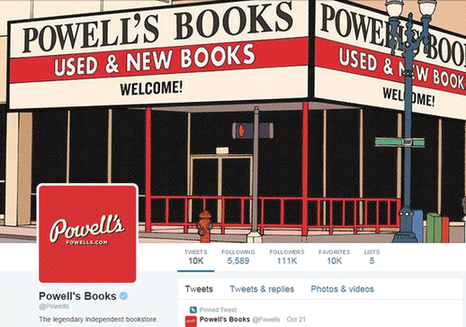If you’re a marketer working in a highly specialized niche, you might be wondering about how you can maximize your impact and make your mark. Some marketers mistakenly believe that being in a niche industry is a disadvantage, but it’s all about how you look at it.

Being a glass-half-full kind of guy, I thought I’d offer some smart, proven niche marketing tips to poor, beleaguered marketers working in very specialized industries. Follow these seven smart strategies to get the most out of your niche marketing campaigns.
1. Know Your Target Niche Market Inside Out
Just because your product or service only appeals to a narrow range of people doesn’t mean you can be lazy when it comes to researching your target market. In fact, running a business offering a product with limited or niche appeal can make it even more difficult to figure out who your ideal customer actually is.

Segmentation is crucial to defining a smaller target market for a niche business. It’s not enough to know the basics – age range, income, marital status – without a deeper understanding of more granular attributes your target markets might have. The smaller your market, the better you have to know your customers.
Niche Marketing Example: Vermont Wooden Toys
One company that really knows its target market is Vermont Wooden Toys.

Ron Voake, proprietor of Vermont Wooden Toys. Image via NBC News
Vermont Wooden Toys, based in the verdant countryside of the Green Mountain State, doesn’t have a flashy website. Most of their orders are taken over the phone. The only online payment offered is PayPal. The best part? Their customers don’t care about any of that in the slightest.
Craftsmanship, dedication, and a fondness for days gone by are what Vermont Wooden Toys’ customers expect, and that’s exactly what they get. Each piece is handcrafted by proprietor Ron Voake, who knows that his customers aren’t looking for bells and whistles – they want authentic, handmade toys made with love.
Voake’s business attracts a diverse clientele – predominantly parents, perhaps obviously – but he also knows that the type of person who buys from him values time, skill, and craft. As such, they’re willing to pay for quality products.
Many of Voake’s customers also value their children’s safety in the highest regard – so much so that, following a major product recall of children’s toys in 2007 over lead paint fears, customers began flocking to Vermont Wooden Toys in droves. The surge in interest even caught the eye of The New York Times and NBC News, providing Voake and his company with the kind of publicity and free marketing money can’t buy.
2. Solve Your Customers’ Problems
In addition to knowing everything there is to know about your niche market, it’s also vital to know how your product or service will fulfill a need not currently being met by another company in your industry. What makes your business so special? What’s your unique selling proposition? How are you taking care of your customers?

Small, crowded markets are just as competitive – if not more so – than their larger counterparts. For this reason, it’s essential that you genuinely think of the customer first, and make this commitment to excellence a cornerstone of your niche marketing strategy.
Niche Marketing Example: Pansy Maiden
Few small businesses I know of operating in the niche marketing space know how to take care of their customers quite like Pansy Maiden, a handmade bag and accessory business based right here in Boston.

All of Pansy Maiden’s products are vegan (PETA-approved, no less), meaning that they appeal to a highly specific type of customer (see point 1). However, while Pansy Maiden certainly know their target market, it’s their consistently excellent approach to customer service and putting the customer first that sets them apart.
Pansy Maiden maintains an active social media presence, and they frequently thank and interact with their customers on a personal level, further strengthening their perception in the eyes of both existing and potential customers.
Pansy Maiden also go to great lengths to accommodate special requests, such as timely orders for special occasions. Overall, doing business with Pansy Maiden is a genuine pleasure, and one that has enabled the business to expand its loyal customer base in just a few short years.
3. Rethink How You Spread the Word About Your Business…
Niche marketing isn’t like “regular” marketing, only smaller – it requires an entirely new approach to how you spread the word about what you’re offering. It’s crucial that you assess the strengths of any marketing channel in relation to your business.

For example, social media advertising has proven increasingly lucrative for small businesses operating in niche markets. However, the granularity of the targeting options offered by Twitter, Facebook and the like may not necessarily be cost-effective for your business, as social media platforms know exactly how valuable these targeting options can be. If this is the case, paid search might be a more viable solution. Whatever your situation, you need to scrutinize the potential return on investment of any niche marketing strategy to ensure that you’re reaching your target market in a cost-effective way.
Niche Marketing Example: Powell’s Books
When it comes to mastery of social media, Powell’s Books in Portland, Oregon, knows a thing or two about self-promotion.

You could be forgiven for thinking that a bookseller isn’t a niche business, but you’d be wrong. Selling books requires an extraordinary breadth of knowledge and a great deal of strategy, both of which Powell’s has in spades – it’s not known as “the legendary independent bookstore” for nothing.
In addition to actively supporting local authors, Powell’s also contributes to online discussions about books and literature in general, uses hashtags to great effect through giveaways and other promotions, and even highlights the work of other independent bookstores across the country. Powell’s social media marketing plan, combined with its remarkable commitment to books and its customers, have earned it a cult following across the U.S., and for good reason.
4. …And Invest in PPC Advertising
If you’re offering a niche, boutique product to a small market, paid search is virtually essential.
Maybe you’re already sold on the concept of PPC. If not, stop and think about it for a second. Somewhere, out there, someone wants what you’re selling – yes, even that.

PPC is perfect for niche marketing campaigns. Include long-tail queries as well as high commercial intent keywords, optimize your campaigns for mobile (and be sure to make use of the appropriate ad extensions), and get your message in front of the right people.
Niche Marketing Example: Lefty’s San Francisco
Even though one-in-ten people are left-handed, products for the southpaw in your life could still be considered a niche market. Many small businesses claim that PPC doesn’t work for them, or that they can’t compete with the big retailers, but in many cases, that simply isn’t true. Case in point, San Francisco-based left-handed retail specialist Lefty’s.

Lefty’s San Francisco. Image by Reese Dixon.
In addition to ranking strongly on organic search terms, Lefty’s is leaving nothing to chance, and also invests in PPC advertising for search terms that southpaws are likely to be using, including this example below:

Lefty’s is a great example of a business that is covering all its bases. This small store on San Francisco’s Fisherman’s Wharf proves that PPC can be highly valuable for small businesses, especially those catering to niche markets.
5. Keep Tabs on Your Niche Marketing Competitors
For businesses in niche markets, it’s vital to know what your competitors are up to. Fortunately, you don’t need to resort to corporate espionage to get the dirt on what’s working for other companies in your niche. In fact, you don’t even need to leave your office.

Image via Lifehacker
Numerous software tools – including WordStream Advisor – offer competitive intelligence that can yield remarkable insights into what niche marketing strategies your competition is using, and which are working. Other tools you can use to snoop on your competitors include Adbeat, MixRank, and WhatRunsWhere.
Niche Marketing Example: GetOutfitted
Colorado-based winter sports clothing rental company GetOutfitted knew that AdWords was a potential win for them – they just didn’t know how. After trying to manage their PPC campaign themselves, they decided to enter a competition that WordStream ran last year. Little did they know how much this would change their business.

After running the AdWords Performance Grader on their AdWords account, GetOutfitted’s VP of Marketing, Kristi Anderson, discovered how her PPC campaigns stacked up against similar businesses.
Kristi learned the importance of negative keywords, how to manage her daily budget more effectively, and several other valuable lessons that helped GetOutfitted more than double their Quality Score, achieve a CTR 24 times higher than it was before running the Grader, and improve the positioning of their ads, among other improvements.
To see how WordStream’s AdWords Performance Grader helped GetOutfitted, read the full case study here. Alternatively, evaluate the strength of your own AdWords account for free in 60 seconds or less!
6. Be Open to New Opportunities
Just because you’re in a niche market doesn’t mean you can’t think about expansion or ways to improve what you’re offering. It’s crucial that you do what you do well, but don’t discount the possibilities of opening up your product line or serving new target markets.
However, while it’s a good idea to consider expansion, it’s just as important to think about whether doing so is viable. Can you afford to take a chance on a new product line? What about test marketing an existing product or service to a new demographic? Experimentation can lead to valuable new opportunities, but only do so if you can afford to conduct a thorough evaluation of your new ideas without compromising the quality of your existing products and the standard of your service.
Niche Marketing Example: Long Made Co.
Husband-and-wife team Jamie and Carissa Long are the proprietors of Long Made Co., a boutique home lighting business based in Houston, Texas.

The Longs have been making custom lighting solutions together since launching their company in 2012. Having grown their business through popular online marketplace Etsy, the Longs are now looking to move beyond the lighting vertical to include home furnishings and décor.
However, they are still gauging the market for such products, and are continuing to pour everything they have into running their business the way they have – with a dedication to craftsmanship, and a commitment to providing quality customer service.
7. Listen to Your Customers – REALLY Listen
You might think that nobody knows your business better than you, but you’re wrong – your customers do.

Even the best-laid niche marketing plan is doomed to fail unless you’re committed to genuinely listening to your customers. Don’t worry about having to ask them what they think – they’ll tell you.
If you’re not using social media as a niche marketer, start. Right now. Social media is simply unbeatable for instantaneous feedback on your product or service and how well you’re doing at keeping your customers happy. If a customer has a problem, do everything in your power to solve it as quickly as possible. It’s hard to understate how important this is – just because your operation may be small or you’re marketing a niche product doesn’t mean you can slack off when it comes to taking care of your customer base.
Yes, monitoring online mentions of your business is time-consuming. However, it’s a hell of a lot less work than mitigating the damage of a negative review, fighting a tide of critical tweets, or trying to convince new customers that you really do care when your previous actions say otherwise. Word of mouth marketing is incredibly powerful – when things are going well. In niche marketing, you need to listen carefully to what people are saying, and act immediately to rectify your mistakes.
Niche Marketing Example: Wistia
As one of the most awesome companies out there, video hosting firm Wistia rarely have to go groveling for forgiveness on social media. However, that doesn’t mean that Wistia isn’t constantly listening to its customers and providing them with what they really want.
In this example, Wistia recently expanded the number of videos that members with a free account could host on the service from three to fifty. The response on social media was immediate and overwhelmingly positive – and Wistia was quick to act on the goodwill.
.@philcampbell @csavage Love back at ya from Cambridge! pic.twitter.com/ZHfmStqdH0
— WISTIA (@wistia) October 21, 2014
Since launching their free plan just two years ago, Wistia has expanded its user base from 3,000 to more than 110,000. This kind of success simply isn’t possible unless you listen to your customers, provide them with an excellent product, and remain committed to their success and not just your own. Wistia knows that customer happiness is everything – even customers who aren’t paying subscribers. This kind of responsiveness not only generates a lot of positive buzz, it also helps businesses with small (or nonexistent) budgets grow, a win-win for everybody.
‘Niche’ Rhymes with ‘Quiche’
So, there you have it – seven tips for nailing niche marketing. If you’re a marketer working in a highly specialized field, I’d love to hear what strategies have been working for you.







